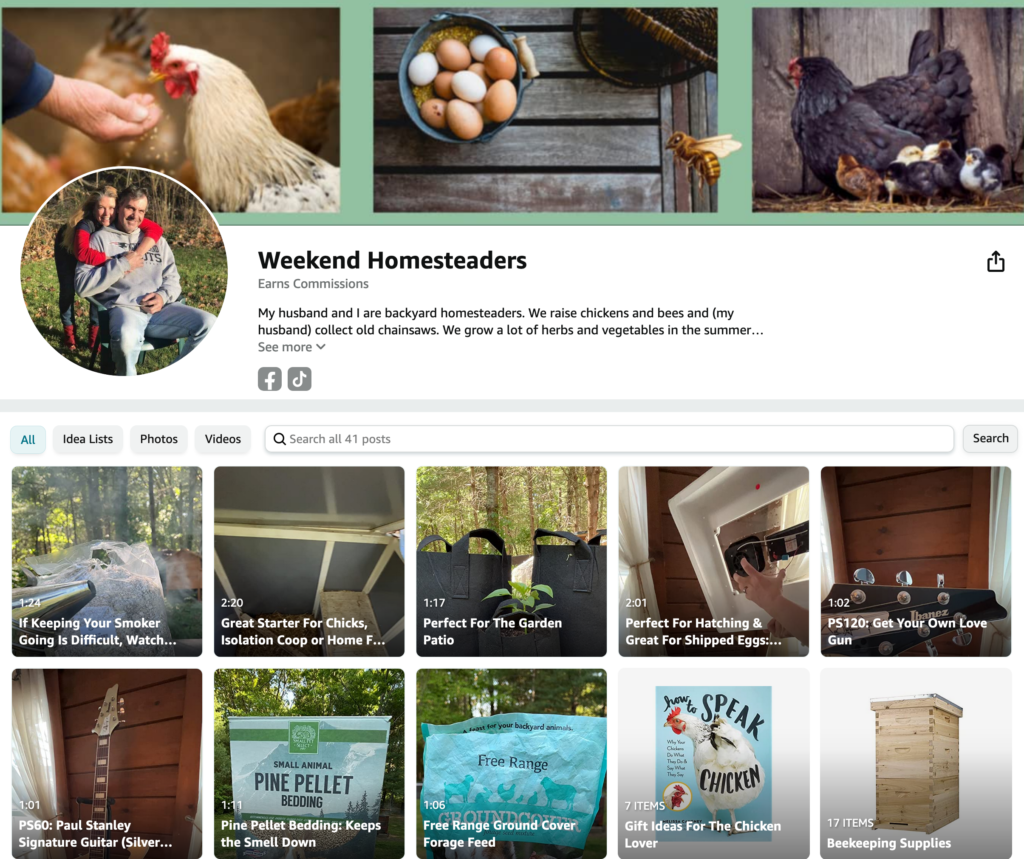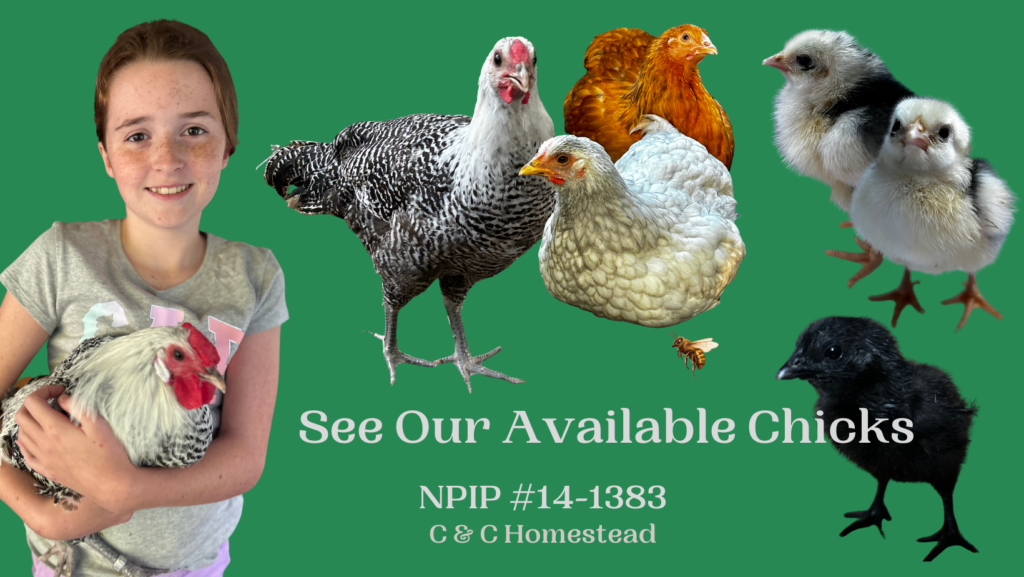Balancing Corporate & Homesteading Lifestyles
Why the Little Chick Inn University?

As the backyard chicken movement continues to grow, more and more people are bringing chicks home—some for the first time ever. It’s exciting to see so many new chick tenders joining the community, but with that excitement comes a big responsibility: giving these little lives the best possible start.
With the boom in backyard flocks, advice is everywhere—especially in Facebook groups and local forums. The photos and comments in this blog post are pulled directly from real posts on popular and local chicken pages. While most folks truly mean well, many of the tips being shared are misinformed, inhumane, or just not the best practice. Unfortunately, chicks are especially vulnerable to these missteps.
Raising chickens isn’t one-size-fits-all, but at Little Chick Inn, we believe the foundation should always be built on sustainable, compassionate care. Our chickens are more than just egg producers—they’re a vital part of our homestead, and they bring us daily joy, peace, and laughter.
We created Little Chick Inn University as a personalized resource for people purchasing our chicks—and for anyone who wants to raise their birds with intention and heart. Whether you're brand new or just looking to improve your approach, we’re here to help you navigate this rewarding journey with the knowledge, confidence, and care it truly deserves.
Let’s raise happy, healthy chicks—together.
Want to know more? Visit our Little Chick Inn University HERE.
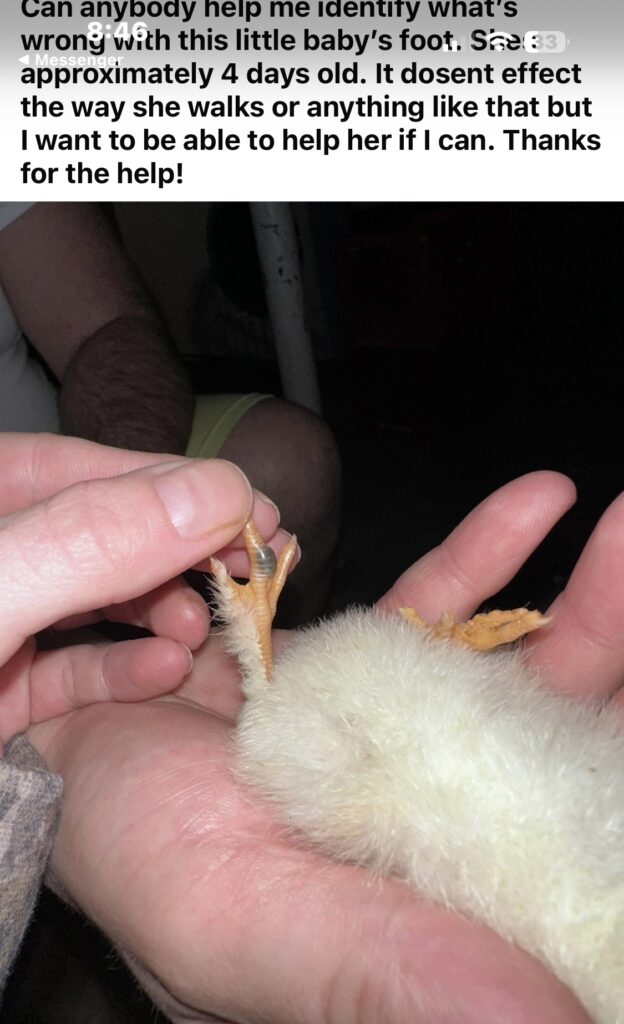
Why Chicks Shouldn’t Be Placed on Their Backs
In the image, a baby chick is shown lying on its back in someone's hands, feet up and belly exposed. While it may seem cute or harmless, this is actually a dangerous position for chicks—and for all chickens.
Chickens have delicate respiratory systems that can be compromised when they’re placed on their backs. This position can cause stress, disorientation, and even difficulty breathing. In young chicks especially, it can interfere with normal development or lead to injury if they panic and struggle to flip over.
Always handle chicks gently and keep them upright to ensure their comfort, safety, and proper health. What looks innocent can actually be quite risky for these fragile little creatures.
(Below) Proper biosecurity might have prevented this.
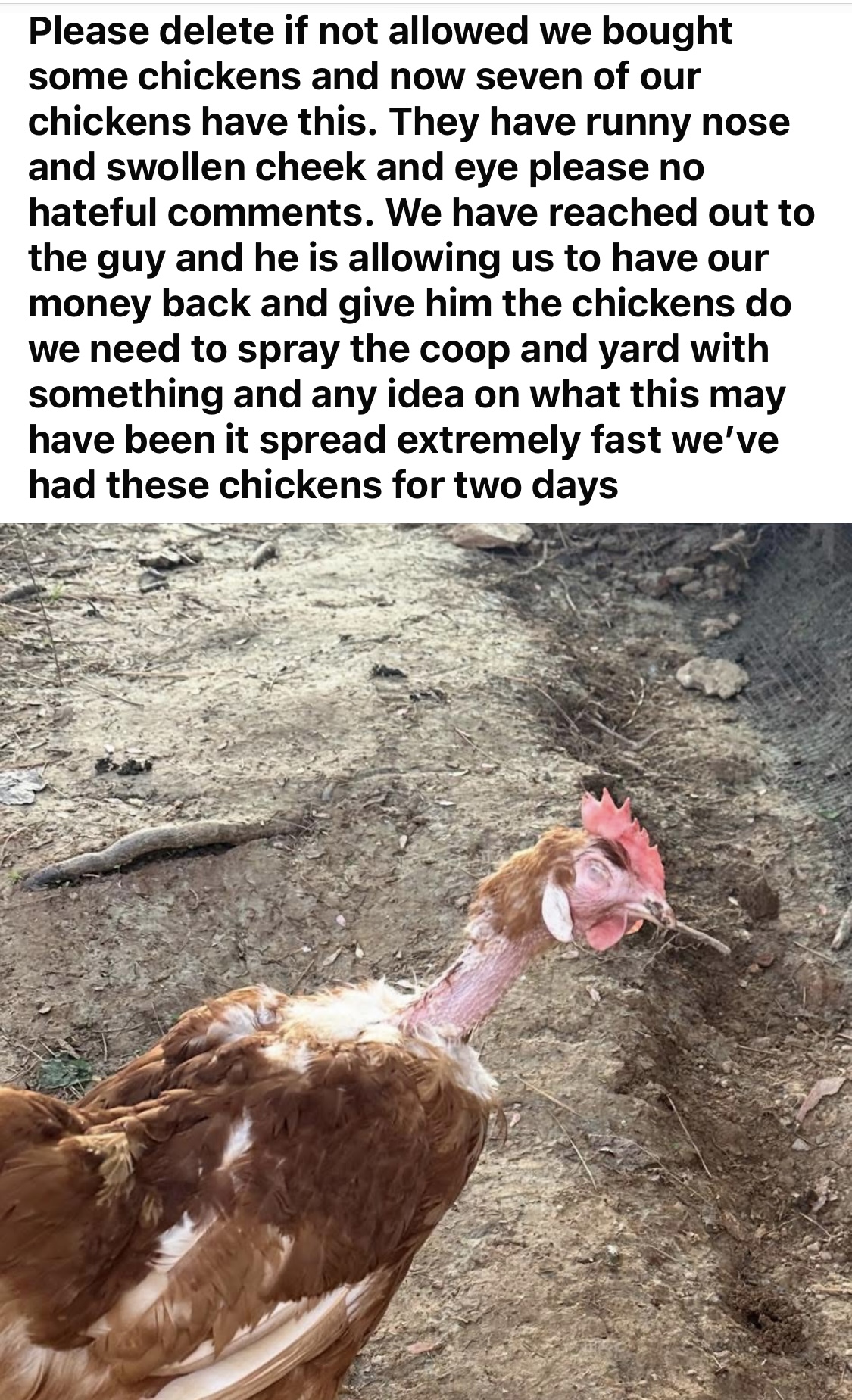
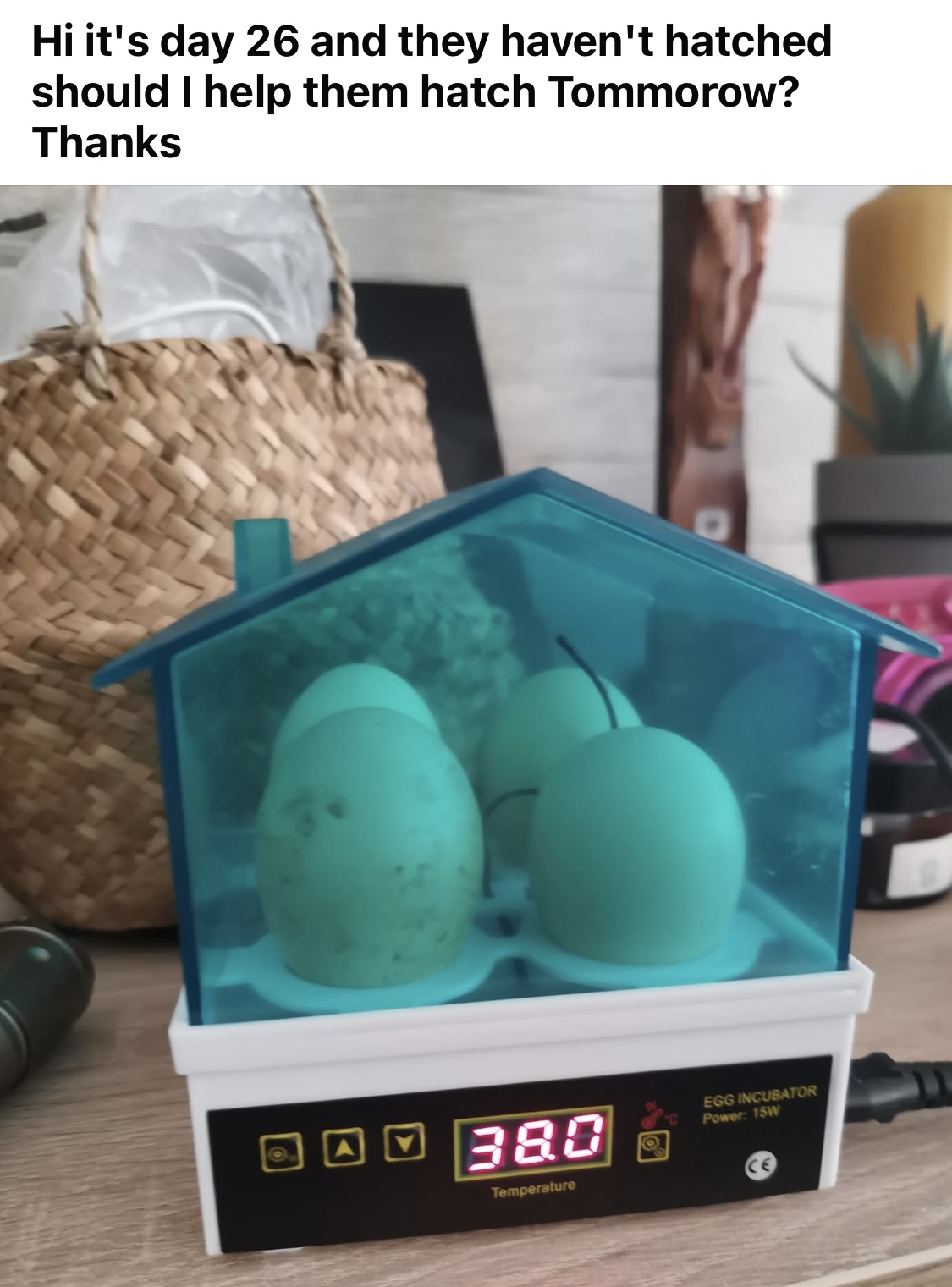
Above: Do your research prior to hatching to prevent some common but unnecessary mistakes.
I am at a loss on this post. Someone asked for help with a chick that hatched with issues. The suggestions from the group are horrifying.
See above right for just a few.
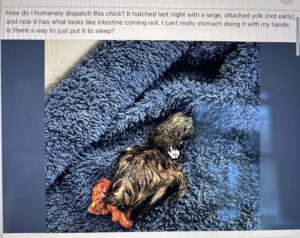
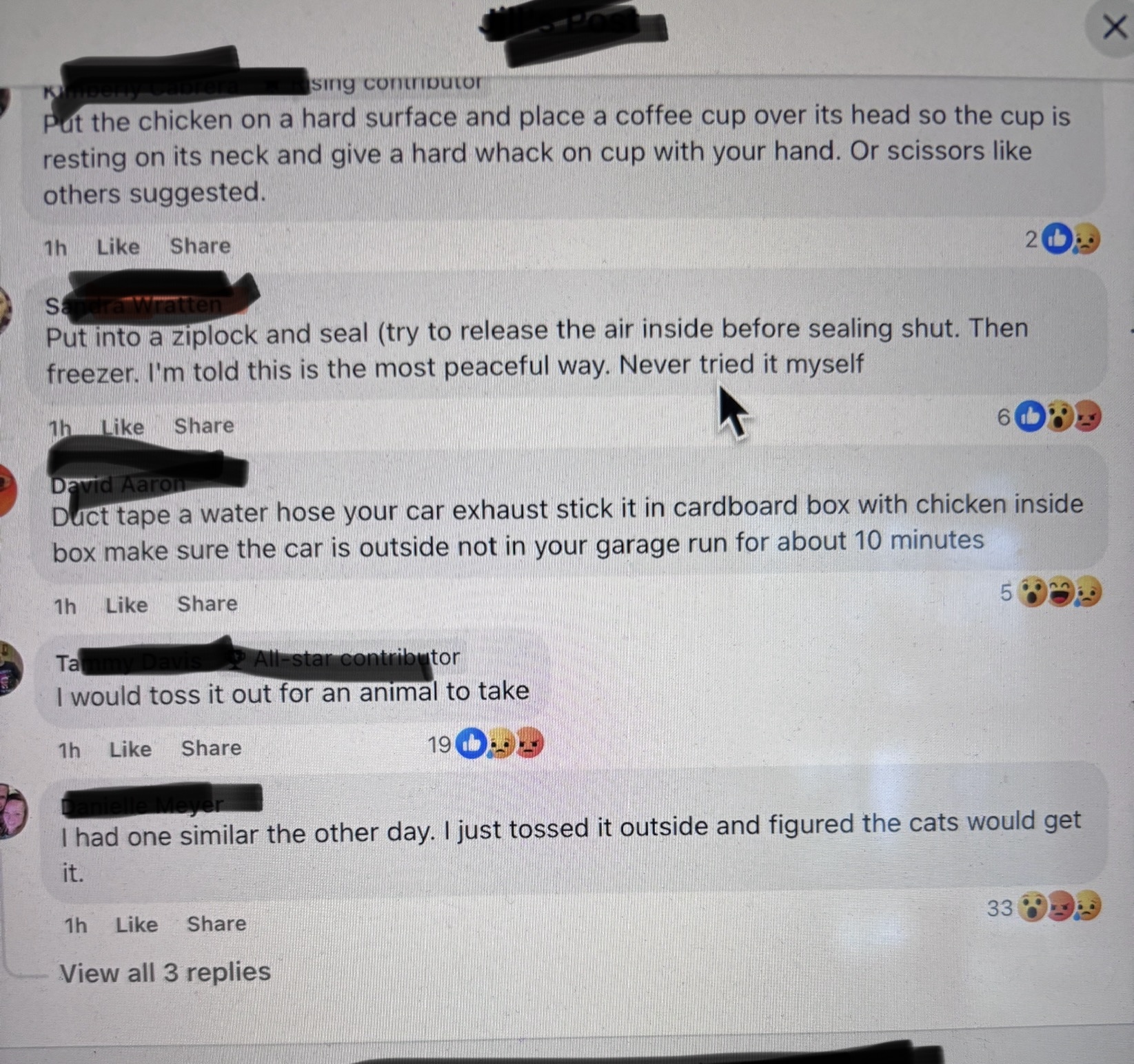
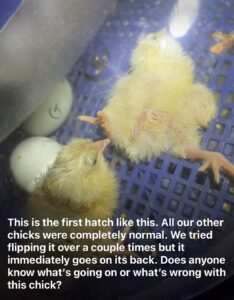
This is a somewhat common problem (especially when chicks are incubated under less than favorable humidity conditions - BUT not always) - this is a relatively easy fix in many circumstances as long as it is discovered and corrected as soon as possible.
Learn more in the Little Chick Inn University.
